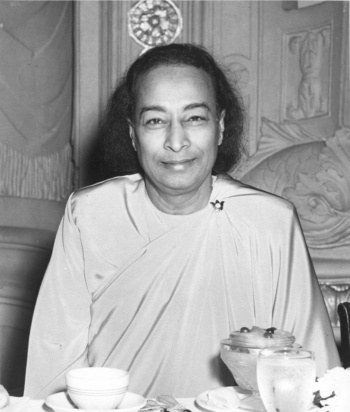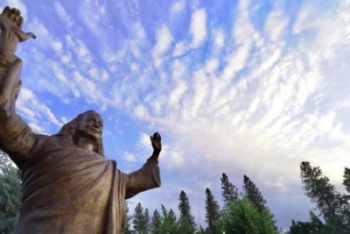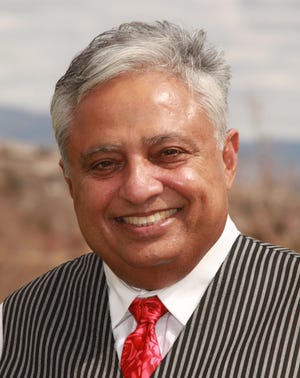
Many will list the lessons learned from COVID-19 as the need to embrace spirituality; that faith can be expressed in nontraditional ways; that faith provides comfort, hope, reassurance, a sense of security and solace during crisis; that we should find meaning in religion; that we should engage in flexibility and adaptability in delivery of religious services. For some it was a lesson in humility and a call to practice prayer. Others found that religion can bring positive change; that religion is a balm for the soul. Some found the need to serve the vulnerable, express solidarity with others and stay connected by creative means. Many found that spirituality is powerful.
Some other voices and lessons were that believers and nonbelievers suffer equally; COVID-19 did not spare adherents of any religion/belief; faith has been strengthened by COVID-19 — or, conversely, that God does not seem to care for our troubles anymore — we have to come up with our own solutions. Others say that God is still with us and has not left us; God is teaching us a lesson; God should treat us gently and not harshly; it is a test of humanity; medical experts are new prophets sent by God — listen to them; the virus is natural and not supernatural.
There are some who question: Why would an all-powerful and loving God do this to His own creation or allow COVID-19 to happen? Is He not supposed to protect us? Is He really in control?
Is it a punishment from God? many ask. Some are expecting a spiritual renewal.
The ancient Prashna Upanishad tells us:
Be kind to us with your invisible form,
Which dwells in the voice, the eye, and the ear.
And pervades the mind. Abandon us not.
We asked our panel: What has COVID-19 taught us?
We are not in control

Steve Bond, co-lead pastor, Summit Christian Church, Sparks
One of the most important lessons we learned from COVID is that, in general, we are not in control. Most of us live under the illusion that we are in control of our lives. But the reality is most of what happens to us is beyond our control. For example, we do not control the parents we have, where we are born, many of the opportunities we have and much more.
COVID crashed into our lives as a stark reminder that we are rarely in control. In times like these, a wise person will look toward God who is ultimately in control. Trusting God allays our fears when things seem to spin out of control.
God’s Word says, “So do not fear, for I am with you. Do not be dismayed, for I am your God. I will strengthen you and help you with my righteous right hand” (Isaiah 41:10).
No man is an Island
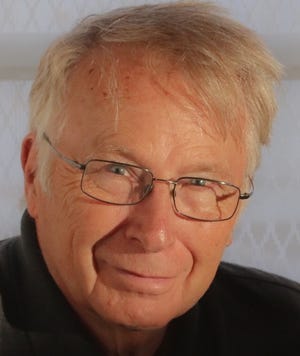
Kenneth G. Lucey, philosophy/religion professor emeritus, University of Nevada
Every religious leader should have a serious interest in human health. The arrival of various vaccines has caused considerable talk about the U.S. reaching “herd immunity.” More recently it has come to be understood that such a result is highly unlikely. The reason for that is that there is a sizeable minority in the U.S. that are vaccine-hesitant and, as a result, there will continue to be a large portion of the U.S. population that remains unvaccinated. As a consequence, “herd immunity” is likely unachievable.
What COVID-19 should have taught us is that “no man is an island;” i.e., the overall well-being of humanity requires that each of us behave in such a way as to maximize the good of the whole society. As long as a sizeable minority of the population remains skeptical of the best scientific recommendations, COVID-19 has not taught us its most important lesson.
Few mentioned
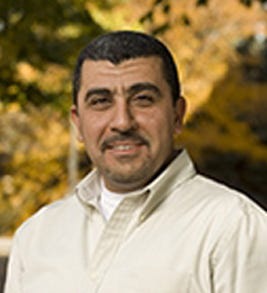
Sherif A. Elfass, president, Northern Nevada Muslim Community
To Muslims, the COVID-19 pandemic served as a reminder for how mighty Allah (SWT) is and how truly weak we are. Who would have even imagined that in a matter of few months the world stayed home, wore masks, and people could not say goodbye to their loved ones? The pandemic also taught us that the virus did not discriminate; the rich, the poor, the strong, the weak, men and women all contracted the virus. However, we discriminated in how treatment was distributed. Indeed, the poor and the weak who suffered the most. The pandemic pointed out that regardless of our technological advances, our knowledge is still limited; we do not know why the virus affected people differently. The pandemic reassured how fragile human life is and that we should not take things for granted. We should focus on the blessings in our lives and cherish our relationships with each other.
To love our neighbor

Pamela A. Pech, creator of discovery of Self Programs
The COVID experience has given religious leaders a real-life example of how important it is to love your neighbor. Being shut in and void of physical connection with others has caused emotional stress for many. It has been an opportunity to remind us of the importance of looking in on those who may not be able to care for themselves. Not just the elderly or the ill … but also those working parents and care givers who are trying to work from home and at the same time educate their children. A reminder to think of those who have family far away. Those seeking work. Those scared and lonely. All are our neighbors. It has also been an opportunity to reawaken in us the importance of God’s gift of human touch, gratitude for the ability to reach out and hold someone in distress, to comfort our neighbor by holding their hand.
We need more gratitude

Matthew T. Fisher, resident priest, Reno Buddhist Center
The pandemic has taught us that we are so vulnerable and understand little. Across the world people have been dying in great numbers from the pandemic. It is not that they die primarily because of the pandemic. It is because of determinate karma that has been settled from the first moment of our births. We should not be so deeply surprised by this. And yet when people die at this time, everyone thinks it strange. It is really quite reasonable.
Our wise and compassionate Universe unfailingly saves those who single-heartedly rely on it — ordinary people of this late Dharma age and people like myself, burdened by deep unskillful karma. At a time like this, we should trust all the more deeply in the Buddha, realizing that we will be reborn in the Land of Clarity. Cast off doubt, steadfastly and single-heartedly acknowledge our gratitude to the Buddha.
We are one
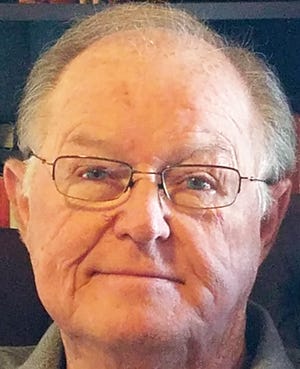
Micheal L. Peterson, northwest Nevada media specialist, The Church of Jesus Christ of Latter-day Saints
As we recover from the COVID-19 pandemic, we can hold on to many lessons taught us. The first is how easy it is to lose our individual freedoms such as freedom of religion. Our freedom to unite in congregations or participate in religious events was taken from us. For members of the Church of Jesus Christ of Latter-day Saints, our prophet had perceived challenges ahead and had members prepared to continue to study organized curriculum at home and share by Zoom technology. But for many without such advantages there was isolation and depression. Many may never again fully participate in their religion.
We learned that our human needs are much the same wherever we live and whatever our religion. We learned the importance of becoming one and caring for one another. Christ put it bluntly: “If ye are not one, ye are not mine” (Doctrine and Covenants 38:27).
Blessed are they who Zoom

Anthony Shafton, author and atheist thinker
Someone who doesn’t belong to a congregation, isn’t a religious leader himself, and hasn’t discussed the question with those who are, can only surmise what COVID-19 has taught them on the basis of the news. The impression made by reports is that religious leaders have learned to be themselves, only more so. To sacrifice in-person services and/or hold them to numbers advised by health experts not only bespeaks humility and compassion, it may well enhance those qualities: It’s a sacrifice for someone attracted to the podium to forego it in favor of Zoom, a leveling medium. Good for them. Then what to say of defiant leaders who’ve treated health guidelines as if they infringe on religious freedom? These leaders seem to put an agenda bespeaking pride and disregarding compassion ahead of the well-being of their congregations. Whose greater glory are they serving?
Who we really are
Karen A. Foster, minister, Unitarian Universalist Fellowship of Northern Nevada
That being spiritual community together is not about the building. Our building has been closed but our community has been as open as ever staying connected, looking after each other, and continuing our work to change the world.
That we are stronger than we think, and more resilient than we imagine. We have learned that we can indeed do hard things.
The importance of human connection and our intense need for community. Never again will we take the simple but profound act of hugging for granted.
That we can create innovative solutions to needs and problems. Even folks who considered themselves “technically challenged” have learned to navigate online platforms successfully.
That racial and socioeconomic disparities in health care access are even worse than we thought.
That while frontline workers went from expendable to essential, many employers still do not pay them a living wage.
In this together
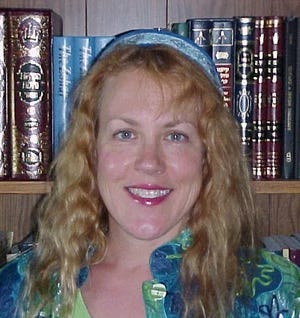
ElizaBeth Webb Beyer, Jewish rabbi
This crisis reminds us whatever happens in one corner of the world impacts the entire planet. We are reminded of the consequences from only considering ourselves, and failing to help or protect our neighbors. If we fail to be good stewards and neighbors, the effects are devastating. We must respect nature, including the animals, rather than be greedy and exploit it. We must compassionately share the planet with all living creatures. People must have proper housing, food, clothing and medical assistance — and animals must be cared for because their well-being impacts our well-being.
Many religious organizations have found new ways to bring spirituality to their congregants. There are new ways to engage spiritually; being especially grateful for spiritual community and singing together. We spend time outdoors appreciating nature and worshiping. We must always make time for those we cherish. We are resilient and we are better together.
Turn to the Lord

Stephen R. Karcher, presiding priest, Saint Anthony Greek Orthodox Church
In Isaiah 26 the Lord advised his people to lock themselves in their homes until the evil passed by, but before that he said its cure will be the refreshing coolness — the dew — that comes from Him. In the same way, this past year has become a season for turning to the Lord. Often when in trouble, we’re inclined to pray and ask God to help, which is a good result that can come out of a difficult situation. Similarly, any acute crisis can lead us to reflect on the deeper questions of life. It’s good to reassess our lives and lifestyles. New situations often produce opportunities for us to see things from a vastly different perspective, like how humans are very fragile, vulnerable and certainly mortal, but also how God, who is eternal and the source of life, gives us the sure and reliable way to overcome all these.
Humanity is one
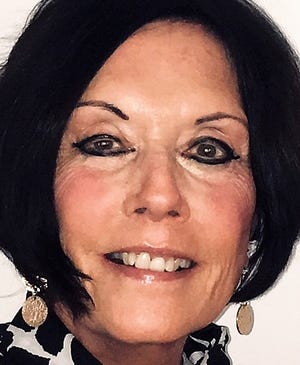
Nancy Lee Cecil, Baha’i teacher
Our founder, Baha’u’llah, explained, “… The earth is one country and mankind its citizens.” His son, Abdu’l-Baha added, “… The earth has one surface. God has not divided this surface by boundaries and barriers to separate races and peoples.”
COVID has underscored these truths, as we have experienced the interconnectedness of humanity as never before: We can now see that the world is connected by supply chains, communication technology, and travel. The oceans and vast land masses of this planet no longer protect us from the negative impact of human behavior. COVID taught us that a disease which arguably jumped from animal to human in one country can lead to illness and death in every corner of our planet. As a result, I pray the world has begun to accept, as the Baha’i Writings tell us, that all of humanity is one. We are, first of all, citizens of the world!
Next week’s topic: Do congregants act on messages in sermons?
Faith Forum is a weekly dialogue on religion produced by religious statesman Rajan Zed. Send questions or comments to rajanzed or on Twitter at @rajanzed.
View Comments
1 Bedroom Apartments in Dubai for Sale. Enquire NowExclusive Payment Plans | Prices start AED 882,000 | Freehold Waterfront Community | Less than 10 minutes from Burj KhalifaSOBHA Hartland|Ad
Behind Bangladesh’s Electronics EmpireCNN with Made in Bangladesh|Ad
Susan Boyle is now so thin and looks beautiful!Cars&Yachts|Ad
Most dangerous dog breeds ranked in orderLoansocieties|Ad
If you don’t want cancer, stop hitting these foodsSoo-healthy.com|Ad
The Secret Behind Babbel: An Expert Explains Why This App Is the Best for Learning a New LanguageBabbel|Ad
Nadia Comaneci confirms what we knew all alongSoolide|Ad
We Tested This App To See If You Could Learn A Language In 21 DaysBabbel|Ad
Read More
Lasik Eye Surgery in UAE: Prices in 2022 May Surprise YouLasik Eye Surgery | Search Ads|Ad
Dubai: Unsold Cars Are Almost Given AwaySUV Deals | Search Ads|Ad
Deal of the Day
Apple Air Pods Pro Are $60 Off Right Now At AmazonREVIEWEDView Deal
Recommendations are independently chosen by our editors. Purchases you make through our links may earn us a commission.
Recommended
Indiana couple missing in Nevada ‘at peace’ as husband diedNEWS
Here Is What Full Mouth Dental Implants Should Cost You in 2021Dental Implants Cost | Search Ads|Ad
Read More
Why you should put a cloth with vinegar in your toilet bowl at nightOnlineCollegeLogic|Ad
More Local Stories
A majority of Nevadans are worried about climate change, poll showsNEWS
Breaking: Attorney for Troy Driver says he maintains he is innocentNEWS
Missing Indiana couple found in southern Nevada; husband deadNEWS
RGJ Poll: GOP hopefuls gain edge over Cortez Masto, SisolakNEWS
Full Mouth Dental Implants Cost might surprise you in 2021Full Mouth Implants | Search Ads|Ad
The Cost Of Hair Transplant In Al Usbij In 2022 Might Surprise YouHair Transplant | Search Ads|Ad
The Cost to Rent a Private Jet Might Surprise YouPrivate Jet Rental | Sponsored Listings|Ad
Hair Transplant prices in Al Usbij Might Surprise YouHair Transplantation | Search Ads|Ad
More Local Stories
Unruly woman bit fellow passenger, tried to exit mid-flight, FAA saysNEWS
Reno woman set on fire continues long road to recoveryNEWS
Sparks fire chief to retire after firefighters’ no confidence voteNEWS
Snow, wind cause spinouts on I-80, US 395 in Reno-TahoeNEWS
Al Usbij: Liquidation Of Unsold 2020 SUVs. Prices May Surprise YouBest Hybrid Vehicles | Sponsored Listings|Ad
Al Usbij: Used Car Prices in 2021 May Surprise YouUsed Cars | Search Ads|Ad
Dental Implants: This Dentist From Dubai Is The BestFull Set Clear Choice Dental Implants Prices List | Sponsored Listings|Ad
Car Insurance in Al Usbij is not expensive any more! Get QuoteCar Insurance Quote|Ad
Recommended
Dog killer Jason Brown seeks parole; opponents fear releaseNEWS
Reno Aces Opening Day — April 12, 2022NEWS
Do you know how much a private jet costs? It might surprise youPrivate Jet Rent Instant Quote | Sponsored Listings|Ad
Save Up to 50% on your Car Insurance. Get Quote!Car Insurance Quote|Ad
Get Quote
More Local Stories
Arson investigations launched after fires at Midtown business, homeNEWS
40% of Nevadans’ standard of living worse than 2018, new poll findsNEWS
Domestic dispute behind the arrest of Reno city official Jeff LimpertNEWS
The people have spoken — ‘no’ to election changes | Sheila LeslieOPINION
Say bye bye to rent. Book a 3/4 BHK in Mumbai at Rs 5 LakhBirla Group|Ad
Al Usbij: I was surprised when I saw the actual price of a stair liftStair Chair Lift Cost | Sponsored Listings|Ad
Senior housing in Al Usbij – you might not believe the prices!Live-In Care | Search Ads|Ad
9 Exercises For A Flat StomachOMGIFacts|Ad
More Local Stories
Mari Chuy’s restaurant opening another location at Reno-Tahoe airportNEWS
Suffolk/RGJ poll: How Nevada voters are feeling ahead of midtermsNEWS
FOR SUBSCRIBERSSherfield’s NBA decision, transfer portal part of Wolf Pack’s new realitySPORTS
District court to review candidacy complaint filed against BrekhusNEWS
